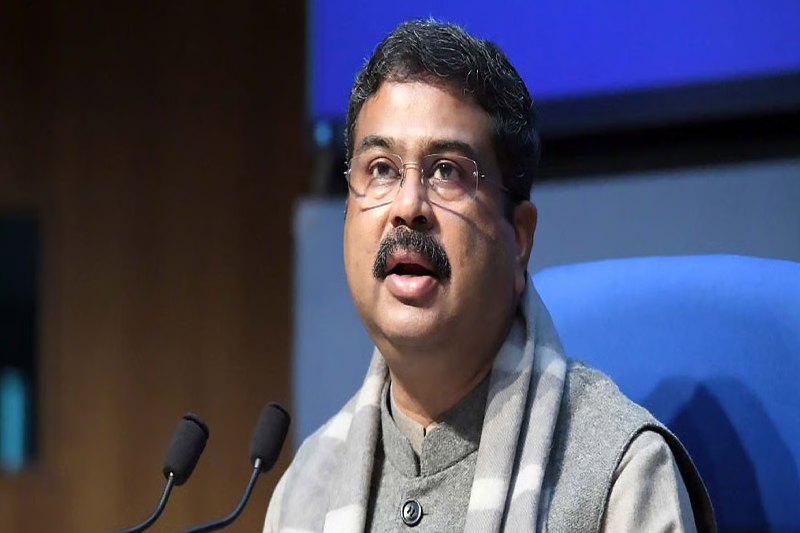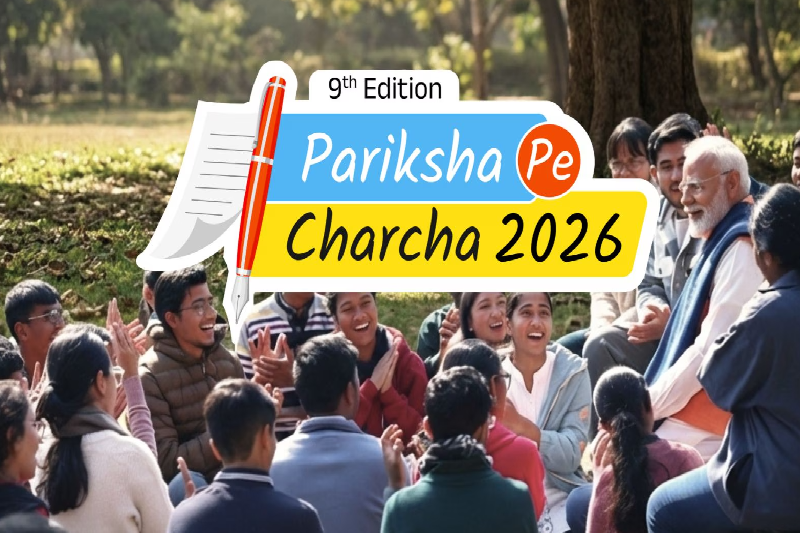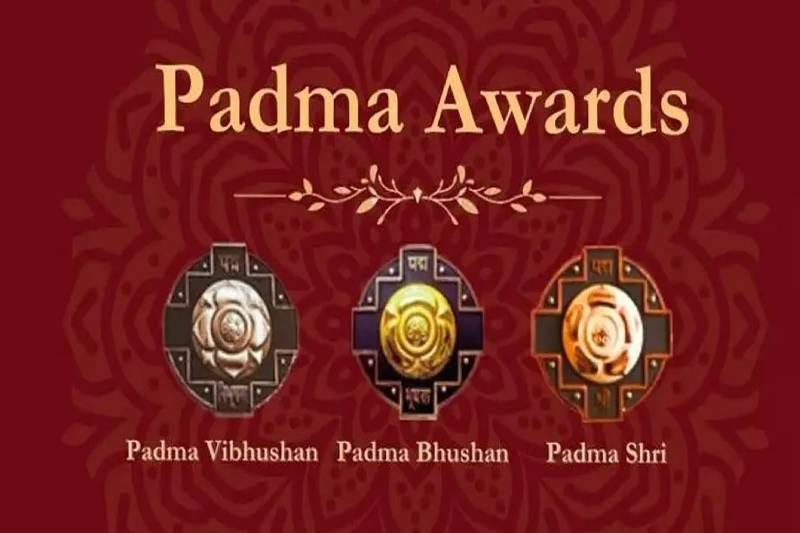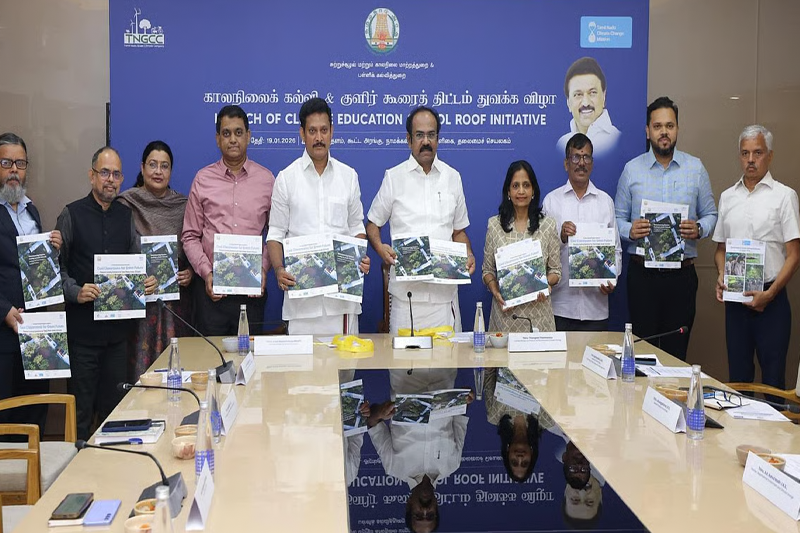
Vande Mataram to Resonate Daily in DU Classrooms: Dharmendra Pradhan’s Call for a National Revival in Education
A Call to Unite: Dharmendra Pradhan’s Vision for Daily ‘Vande Mataram’ in DU
Union Education Minister Dharmendra Pradhan has proposed a powerful and symbolic initiative — the daily collective singing of Vande Mataram across all classrooms of Delhi University (DU). The Minister made this announcement during a commemorative event at Ramjas College, marking 150 years of India’s iconic national song. He emphasized that this practice could serve as a unifying tradition to foster national consciousness, inspire confidence, and instill a deep sense of pride and patriotism among students.
Speaking to a packed auditorium of students and faculty, Pradhan described the initiative as a step towards creating “a confident, self-reliant, and developed India” rooted in its cultural and historical ethos. He envisioned that the collective singing of Vande Mataram could evolve into a “mass movement,” strengthening the emotional and spiritual fabric of the nation’s youth.
The Spirit Behind the Song: From Freedom Struggle to Modern India
Reflecting on the historical significance of Vande Mataram, Pradhan reminded the audience that the song had once been the rallying cry of India’s freedom struggle. Written by Bankim Chandra Chatterji in 1875, the song was later included in his celebrated novel Anandamath. Its stirring verses, praising the motherland, became a source of inspiration for countless revolutionaries and freedom fighters who envisioned an independent India.
“Vande Mataram united the hearts of Indians during the most challenging times in our history,” Pradhan said, adding that its message of devotion and strength remains as relevant today as it was over a century ago. “By reviving this tradition, we not only honor our freedom fighters but also build a bridge between our glorious past and the aspirations of our youth.”
He noted that in 1950, the song was accorded equal status with the national anthem Jana Gana Mana by the Constituent Assembly, led by Dr. Rajendra Prasad. This acknowledgment, Pradhan said, underscored the song’s deep emotional and national significance.
A Transformative Educational Practice
Dharmendra Pradhan believes that the introduction of Vande Mataram as a daily classroom activity is more than a ceremonial gesture — it is a transformative educational practice aimed at nurturing students’ national identity and character.
“If students across the university sing the full version of Vande Mataram together, it will carry forward the song’s message of unity, courage, and love for the motherland,” he stated. “It will connect young minds with India’s historical journey and instill in them a sense of belonging to something larger than themselves.”
He added that this practice aligns with the broader vision of the National Education Policy (NEP) 2020, which emphasizes holistic development, value-based learning, and cultural rootedness. Pradhan called upon educators and administrators to integrate such traditions into daily academic life, making the classroom not just a space for intellectual growth but also for emotional and moral awakening.
A Moment of Reflection and Patriotism
Sharing his personal experience at the Ramjas College event, Pradhan said singing Vande Mataram alongside students and teachers was “a deeply emotional and proud moment.” He described it as a reminder of the sacrifices made by generations of Indians who fought for freedom and dignity.
“The energy in that hall was indescribable. It was not just a song — it was a feeling, a realization of who we are and what we stand for,” he expressed. “When sung together, Vande Mataram has the power to unite hearts and inspire action.”
He encouraged educational institutions to adopt the collective singing practice not as an enforced ritual but as a voluntary expression of respect and love for the nation. “Patriotism must be felt, not forced,” he said, stressing that the initiative should nurture genuine pride in India’s heritage.
Extending the Movement: Uttar Pradesh to Make ‘Vande Mataram’ Compulsory in Schools
In a parallel development, Uttar Pradesh Chief Minister Yogi Adityanath announced that Vande Mataram will soon become a compulsory part of daily assemblies in all schools and educational institutions across the state. Speaking during an ‘Ekta Yatra’ and mass singing event in Gorakhpur, the Chief Minister said the move is intended to deepen students’ emotional and cultural connection with the nation.
“Every student should feel proud while singing Vande Mataram,” Adityanath said. “The song embodies respect, devotion, and an unbreakable bond with our motherland. Making it a daily practice will help instill these values from a young age.”
He reiterated that Vande Mataram is not merely a song but a symbol of India’s collective identity and moral strength — qualities that young citizens must carry forward as they shape the country’s future.
Cultural Revival Through Education
The twin announcements — by Dharmendra Pradhan at Delhi University and Yogi Adityanath in Uttar Pradesh — signal a growing movement to reintroduce cultural pride and national consciousness into India’s educational environment. While the practice of collective singing has long been a part of school life in many institutions, formalizing Vande Mataram as a daily tradition could mark a new phase in nation-building through education.
Experts note that such initiatives, when implemented inclusively, can strengthen students’ sense of belonging, unity, and shared purpose. They can also serve as a reminder that India’s freedom and progress are rooted in values of sacrifice, courage, and respect for the motherland.
As Vande Mataram echoes once again in classrooms and campuses, it may well rekindle a sense of pride and unity among India’s young generation — connecting them to their nation’s soul, history, and destiny.
Conclusion
Dharmendra Pradhan’s call to make Vande Mataram a daily classroom tradition at Delhi University is more than a symbolic proposal — it represents a renewed effort to blend education with cultural consciousness. As institutions like DU and schools across Uttar Pradesh prepare to embrace this initiative, the national song stands poised to inspire a new era of unity and patriotism.
In the words of Pradhan, “Singing Vande Mataram is not just about remembering history — it is about feeling India in every heartbeat.”


